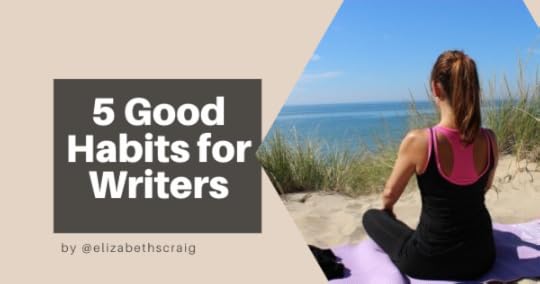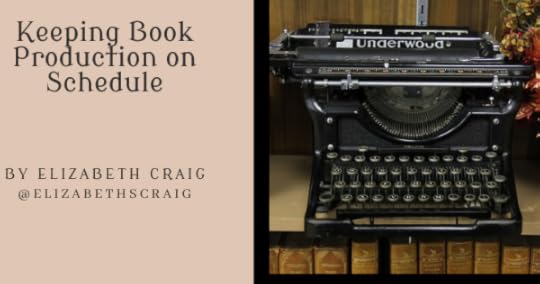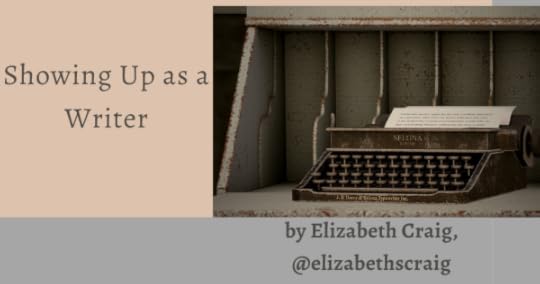Riley Adams's Blog, page 41
June 5, 2021
Twitterific Writing Links
by Elizabeth S. Craig, @elizabethscraig
Twitterific writing links are fed into the Writer’s Knowledge Base search engine (developed by writer and software engineer Mike Fleming) which has over 59,000 free articles on writing related topics. It’s the search engine for writers. While you're there, check out the Writer's Digest award-winning Hiveword novel organizer.
Have you visited the WKB lately? Check out the new redesign where you can browse by category, and sign up for free writing articles, on topics you choose, delivered to your email inbox! Sign up for the Hiveword newsletter here.
The Top Writing Links From Last Week Are On Twitterific:
Click To Tweet
The post Twitterific Writing Links appeared first on Elizabeth Spann Craig.
May 29, 2021
Twitterific Writing Links
by Elizabeth S. Craig, @elizabethscraig
Twitterific writing links are fed into the Writer’s Knowledge Base search engine (developed by writer and software engineer Mike Fleming) which has over 59,000 free articles on writing related topics. It’s the search engine for writers. While you're there, check out the Writer's Digest award-winning Hiveword novel organizer.
Have you visited the WKB lately? Check out the new redesign where you can browse by category, and sign up for free writing articles, on topics you choose, delivered to your email inbox! Sign up for the Hiveword newsletter here.
I'll be offline tomorrow in observance of Memorial Day. Hope everyone has a great week…see you back here next Sunday. :)
Business / Miscellaneous9 Rock-Solid Tips That Will Help You Become a Freelance Writer: @BryanJCollinsFocus on Short Fiction: @StoryADayMay @WriterUnboxedTen Ways for Authors to Waste Their Money: @inkbitspixels @FloridaWriters1On Making Choices in a Writing Career: by Danielle Evans, Eula Biss, Sejal Shah, and Christa Parravani @lithubSelf-Published Authors: Amazon Exclusive or Go Wide? @LiveWriteThriveFreelancing: 3 Things To Implement In Your Writing Business In 2021: @ashleygainerSelf-publishing News: Storytel Partners with Spotify: @agnieszkasshoes @IndieAuthorALLINFTs for Books: How This Emerging Tech Can Reward Authors & Readers: @EJWenstrom @BookRiotThe Business of Being a Writer: @JaneFriedman @Draft2DigitalWriting Contests | 8 Reasons Why You Should Enter: @RobynRosteConferences and Events / MiscellaneousAs Abu Dhabi International Book Fair Opens, Publishers’ Stand Fees Are Waived: @Porter_Anderson @pubperspectivesSheikh Mohamed Funds Book Buying at Abu Dhabi International Book Fair: @Porter_Anderson @pubperspectivesJordan’s Jalal Barjas Wins the 2021 International Prize for Arabic Fiction: @Porter_Anderson @Arabic_Fiction @pubperspectivesSheikh Zayed Book Award Streams Its 2021 Winners Ceremony: @Porter_Anderson @ZayedBookAward @ADIBF @pubperspectivesSheikh Zayed Book Award Winner Iman Mersal: ‘Reading the Past’: @Porter_Anderson @pubperspectives @ADIBF @ZayedBookAwardAt Abu Dhabi International Book Fair: Salha Obaid on Fact and Fiction: @Porter_Anderson @pubperspectivesAt Abu Dhabi International Book Fair: Author Tayari Jones on Timing: @Porter_Anderson @TayariJones @pubperspectivesGermany in the Spotlight at Abu Dhabi International Book Fair: @Porter_Anderson @pubperspectivesToday at Abu Dhabi: Ulla Lenze Explores Family History in Fiction by Chip Rossetti @pubperspectivesAfshin Molavi at Abu Dhabi International Book Fair: ‘West to East’: @oliviasnaije @ADIBF @pubperspectivesCreativity and Inspiration / Inspiration / Reading as WritersOne Author's Top 10 Queer Protagonists in Crime Fiction: @thevoiceofruss @CrimeReadsChekhov’s The Cherry Orchard: Further Evidence That All Stories Are Hauntings: @litcenturypod @lithubCozy Mysteries Featuring Delicious (and Doable) Recipes: @kristadavis @CrimeReadsMysteries Where Secondary Characters Spin-off Into Their Own Adventures: @MargotKinbergSeven Excellent Escapist Adventure Fantasy Books: @AKLarkwood @tordotcomFive Great Thrillers Set in Wild Places: @LuanneRice @CrimeReads8 Books That Show Maine in All of Its Complexity: @WSWinslow @ElectricLitCreativity and Inspiration / MotivationMotivation: What Characters Really Want: @Draft2DigitalCreativity and Inspiration / Productivity / Fitting in WritingAre we all too busy to write? @pubcoachCreativity and Inspiration / SuccessFive Rules for Author Success in 2021: @Bookgal @IndieReaderCreativity and Inspiration / Writing LifeIndexing, filing systems, and the art of finding what you have: @austinkleon Writing can be centripetal or centrifugal: @austinkleonNobody Owes Us Attention: @AnneJanzer8 Great Reasons to Write Your Book: @lornafaithThe Best 7 Health Tips for Writers to Help You Write More: @RobynRoste5 Good Habits for Writers: Writing to Escape: @jamesscottbell @killzoneauthorsDo You Need a Daily Writing Habit? @writingcookbookDo you believe in writing myths? @beprolifiko5 Ways To Avoid Accidental Plagiarism: @BryanJCollinsBlend Creative Fire With the Patience of Being in Progress: @CreativeKatrinaAre You Too Scared to Sell Yourself? @SPressfieldHow to stop trying to do it all — 5 steps to choose the best project (and chuck the rest): @lisa_earlybite @jccabelGenres / Fantasy10 Classic Fantasy Tropes and How To Enliven Them: by Oliver Fox @Writers_WriteGenres / HorrorReflections on a Century of Horror: by T.L. BodineDe-Troping the Witch Lit Genre: @GabyTriana @GNutsofHorrorEditor, Producer, and Writer Tonia Ransom Shines a Nightlight on Black Horror: @ALWlikeahowl @TorNightfireGenres / HumorWriting Comedic Essays: by Vanessa Newman @WomenWritersGenres / MysteryCrime Fiction: The Dangerous Assumption of Invulnerability: @MargotKinbergCozy to Cold-Blooded: Crime Authors Caught Up in Real Crimes: @avonlea79 @DIYMFAHow To Write Authentic Crime Fiction With Patrick O’Donnell From Cops and Writers: @thecreativepennHow To Write A Bestselling Thriller: @HankPRyan @CareerAuthorsJump Scares in Crime Fiction: @MargotKinbergToxic Relationships as an Element in Crime Fiction: @MargotKinbergGenres / Picture BooksSelf-Publishing a Children’s Book – 4 Realities: @KarenCVHow to Publish a Children’s Book [Plus Self-Publishing Tips]: @DaveChessonGenres / PoetryPoetry Revision Bingo: by Suzanne Langlois @trishhopkinsonGenres / ScreenwritingScreenwriting Believe, Care, Invest: Toy Story: @CockeyedCaravanScreenwriting: Page One: ‘Buried’ (2010): @GoIntoTheStoryScreenwriting: Page One: ‘Cloud Atlas’ (2012): @GoIntoTheStoryScreenwriting: Page One: ‘Con Air’ (1997): @GoIntoTheStoryThe Business of Screenwriting: Who does what in a writer-representative relationship? @GoIntoTheStoryScript Analysis: ‘Palm Springs’: @GoIntoTheStoryGenres / Young AdultTips for Writing in the Young Adult Voice: @ReadAlessandra @MorganBadenPromo / Book ReviewsHolistic Reviews: @gmplano @StoryEmpirePromo / MiscellaneousThe Easy Mindset Change that Makes Marketing Your Book Easier: @colleen_m_storyThe Ultimate Guide to Selling Children’s Books: @IndieAuthorALLIHow to Launch a Self-Published Book: @sacha_black @OrnaRoss @IndieAuthorALLIBook Marketing On Podcasts: How To Be A Great Podcast Guest: @thecreativepennThe 7 Elements of a Book Launch: @eandtsmom @TheIWSGBook Marketing: 14 Ideas to Reach Higher Sales: @be_writPromo / PlatformsWhat is an author platform? @NathanBransfordPromo / Social Media Tips5 Types of Video to Add to Your Social Media Marketing: @realJoeForte @CMIContentPublishing / MiscellaneousHow To Make An Audiobook: Publishing on ACX and Audiobook Marketing: @DaveChessonRights Roundup: Arianna Papini on ‘Rediscovering Happiness’: @Porter_Anderson @pubperspectivesFilm Rights: London’s BKS Agency Has an Option for Stephen McGinty’s ‘The Dive’: @Porter_Anderson @pubperspectivesWhat is a Preface? @JFbookmanAuthor Interview with Charles Bolam: The Voice of Indie Audiobooks: @Howard_Lovy @IndieAuthorALLIStorytel’s partnership with Spotify unlocks a back door to the Holy Grail that is the US audiobook market: @thenewpubstdPublishing / News / International PublishingFrance’s Hervé Le Tellier: An Anomaly of a Residency for His Translators: @oliviasnaije @pubperspectivesPEN Belarus Slams Minsk’s Force-Down and Arrest of Roman Protasevich: @Porter_Anderson @pubperspectivesIn Egypt, Publishers Are Moving to E-Commerce: @Porter_Anderson @pubperspectivesPublishing / Options / Self-PublishingSelf-Publishing A Book? A Free Guide: @DavidGaughranPublishing / Options / Traditional Publishing / QueryingThe Best Literary Agents Seeking Submissions: @ReedsyHQHow Do I Find Comps for My Book? @RachelleGardnerPublishing / Options / Traditional Publishing / RejectionsContinuing on in the Face of Rejection: @TheBlondePI @WomenWritersPublishing / Process / LegalitiesCan I Use Song Lyrics in My Book? @RachelleGardnerPublishing / Process / Services to AvoidTwo Scams to Watch Out For: Writers' Conference Phishing Scheme, Goodreads Extortion Scam: @victoriastraussWriting Craft / BeginningsFind the Ending Before You Return to the Beginning: by Sharon Oard Warner @JaneFriedmanWriting Craft / Characters / ArcUse Character Arcs to Create Meaningful Stories: @KiingoCreativeArchetypal Character Arcs: The Queen Arc: @KMWeilandWriting Craft / Characters / DevelopmentRelationship Thesaurus Entry: Teacher and Student: @beccapuglisi @onestop4writersA Core Question for Getting to Know Your Character: @Janice_HardyWriting Craft / ConflictQ&A: Battles in the Rain and Writing Character Action Games: from How to Fight WriteDoes Your Novel Have a Problem? (It Should): @Janice_HardyWriting Craft / Flashback and Back StoryBackstory and Exposition: 4 Key Tactics: @manzanitafire @JaneFriedmanWriting Craft / Lessons from Books and FilmThe Rashomon Effect: How to use it in your story: @themaltesetigerWriting Craft / MiscellaneousHow To Write The Death Scene: @officialajc @Writers_WriteEmotional Logic, Or How to Keep Readers From Throwing Your Book Against the Wall: @CarriePadgett @A3writersThe Inciting Incident and Character Void: @KiingoCreativeHow to Convey the Refugee Experience Without Resorting to Refugee Tourism: @aprilyee @ElectricLitHow to Use Different Methods of Time Travel in Fiction: @Stepha_OBrien @TheRyanLanzHow to Write a Genre Story: Setting: How to Show Not Tell: @woodwardkarenWhy Every Author Should Write Haiku: @AmongTheZombies @LitReactorTips on Writing The Boring Stuff Readers Tend to Skip: by Jenna HarteWriting Craft / POVMultiple Points-of-View: Tips for Clarity and Creativity: @10minnovelistWriting Craft / Pre-Writing / ResearchUnderstanding and Writing Horses: Paying Attention: @dancinghorse @tordotcomWriting Craft / RevisionRewriting Your Novel: @LindasclareSelf-Editing: How to Improve Your Writing: @BryanJCollinsEight Essential Edits for Your Novel: from Jeanette the Writer @DIYMFAWriting Craft / ScenesWhat Exactly Is a Scene? by Chris Winkle @mythcreantsWriting Craft / SeriesWriting Tips: How To Structure And Write A Series: @SaraRosett @thecreativepennWriting Craft / Settings and DescriptionSetting As Character: @DPLyleMDWriting Do’s And Don’ts: Room Settings: @KMAllan_writerWriting Craft / SynopsesHow to Write a Synopsis: @BrynDonovanWriting Craft / VoiceA Look at Voice: @authorterryo @killzoneauthorsFinding Your Voice: @Emily_R_King @DIYMFAWriting Craft / Word CraftingMaking Up Words: by PJ Parrish @killzoneauthors
The Top Writing Links From Last Week Are On Twitterific:
Click To Tweet
The post Twitterific Writing Links appeared first on Elizabeth Spann Craig.
May 23, 2021
5 Good Habits for Writers
by Elizabeth S. Craig, @elizabethscraig
There are so many different aspects of being a writer these days. We have to be more outgoing online than many of us might want to be. We have to think of ways to increase visibility for our books. And we have to write the books.
With all the different things we have to juggle, here's a post that goes back to the basics. These are five habits I've developed through the years that have made my writing life either easier or better in some way. I'd love to hear yours in the comments.
Exercising: This is one important thing I had to add to my list about five years ago. If you've ever suffered the consequences for sitting too much, you'll understand why it made the list. After spending far too many weeks in physical therapy, I realized it's better to prevent back problems from happening than to fix the problems after they've happened. I have an inexpensive ($300) foldable treadmill at my house that makes it easy for me to meet my goal of walking on it every day. Stretching multiple times a day helps, too.
Jami Gold has a great post on wrist exercises for writers.
Colleen M. Story offers us 8 stretches and exercises to prevent “computer hunch.”
Reading: I've always been a huge reader and I've always enjoyed reading mysteries most of all. For the last couple of years now, I've also tried reading more of a variety of different books. The different writers' voices and themes have really helped me grow as a writer and have helped inform my mystery writing.
Shannon Dittemore explains other benefits of reading for writers in this post.
Writing–Something: As long as you're writing regularly, you're in good shape. I think blog post writing is also a great writing warm-up for other types of work. I don't think it's important to set big goals or to write really quickly. Creating a writing habit is so much more important, whether that's daily or weekly. And never try to catch up to where you think you should be: there's nothing more discouraging.
Note-Taking: This can either be high-tech, low-tech, or a combination of both. The important thing is to always be ready to jot down random ideas: phrases, names, situations, story concepts . . . whatever pops into your head when you're out living your life. I keep a small notebook in my purse and another notebook in my car. I also jot down ideas on my phone using the free Google Keep app.
Jacqui Murray has other writerly uses for Google Keep.
There's no reason to curate what you stick in your notebook, either, as you're jotting things down. You can either develop your jottings into a great idea or you can scratch them out later. Writer and artist Austin Kleon loves notebooks. One reason is that he thinks notebooks are “a good place to have bad ideas.”
Refilling the Well: This is primarily to keep from burning out, but it's also to gain inspiration in a variety of different ways. Reading does help me refill my well, but so does listening to music, going for walks, and watching interesting television and movies (I try to keep a list going so I always have something good to watch. I want to refill my well, but I don't want to waste my time).
Those are the five habits on my list, but I'm curious to hear yours. :) What habits have made your writing life easier or better?
Photo on VisualHunt.com
The post 5 Good Habits for Writers appeared first on Elizabeth Spann Craig.
May 22, 2021
Twitterific Writing Links
by Elizabeth S. Craig, @elizabethscraig
Twitterific writing links are fed into the Writer’s Knowledge Base search engine (developed by writer and software engineer Mike Fleming) which has over 59,000 free articles on writing related topics. It’s the search engine for writers. While you're there, check out the Writer's Digest award-winning Hiveword novel organizer.
Have you visited the WKB lately? Check out the new redesign where you can browse by category, and sign up for free writing articles, on topics you choose, delivered to your email inbox! Sign up for the Hiveword newsletter here.
The Top Writing Links From Last Week Are On Twitterific:
Click To Tweet
The post Twitterific Writing Links appeared first on Elizabeth Spann Craig.
May 16, 2021
Writers on their Biggest Business Challenges

by Hank Quense, @hanque99
When I revised my book, Business Basics for Authors, I decided to ask other authors about this idea of a business. I asked three questions and I got over a dozen answers. Some of the authors write fiction, others write non-fiction. Some have publishers, some are self-published.
Here are the three questions:
1) What is the most difficult part of managing your book business?
2) What do you think is the most important business issue you have to deal with?
3) If you could eliminate one business chore, what would it be?
The answer to question 1 was covered on April 26, 2021.
Question 2 is answered below and Question 3 will be answered next month.
What do you think is the most important business issue you have to deal with?
Elizabeth Craig: Sadly, reaching new readers, the most challenging part of my business, is also the single most important. I have a good number of readers now, but to maintain and increase readership, I have to commit to activities that expand my base.
Mark Cain: Handling the tax aspects, making estimated tax payments, maintaining receipts, preparing tax materials for the IRS. It’s not rocket science, but it’s tedious. And necessary.
Elaine Durbach: I suppose the most important business issue is finding a way to earn more than I lay out — and hopefully to justify the earning time spent on writing. That feels almost unattainable at the moment even though I write pretty fast!
Anna Faversham: Making sure that legalities are attended to, such as paying tax.
Mark Henderson: Arranging book signing and promotion evenings and manning book stalls at festivals etc. It's not something publishers do for authors; they expect us to be proactive — quite properly, of course.
Joylene Butler: I’ve been told it’s marketing. Seriously, I understand why that is. But I am not comfortable marketing myself let alone my books. Best selling authors don’t have that problem. I don’t want that problem. I suppose that means I better write a best-seller.
Dale Lehman: This is a bit of a toss-up. Clearly (in keeping with #1), marketing is extremely important. But equally important is having a good product to market. I therefore consider both developing my craft and becoming better at marketing as equally important.
Rick Gualtieri: I like to think that a well written book will rise to the top, but the truth tends to be a bit different. Take a masterful piece, exquisitely written but poorly marketed, versus a work of lesser quality but with a well thought out marketing plan. 9 times out of 10, it's the latter that will dominate the charts. There is a luck element to becoming a bestseller, don't let anyone tell you otherwise, but via marketing we can affect how likely it is that lightning will strike.
Donna Baier Stein: juggling writing time v. book promotion time.
Stuart Aken: All ‘selling’ is tainted with dishonesty, and that is my biggest barrier. I promote my books from time to time with excerpts from the stories and from reviews I’ve received. But it’s not a task I enjoy or spend much time on.
Sarajane Giere: The most important issue I must deal with will come when I’m selling the book at local festivals and have to deal with the accounting side of marketing. If these Covid restrictions abate, I hope to be selling my book face-to-face with prospective readers at different venues such as book stores, libraries and literary festivals. So far, I’ve had some success doing this in small settings, such as two Zoom book-talks with sales following my presentation.
Stephanie Auteri: Being proactive about doing live events I can then tie back to my book. Back when my book launched, I found that people who saw me live at readings or workshops or conferences immediately wanted to buy my book. I guess I'm charming despite my crippling social anxiety? The thing is, my crippling anxiety holds me back from actively pursuing new and similar opportunities.
Also, being proactive about pitching new stories I can tie back to my book. I'm a journalist but, in the two years after my book pubbed, I felt depleted, and I leaned heavily on a part-time editing job. As a result, my byline stopped appearing everywhere… and my byline is one of the things that keeps my book in front of people's eyeballs.
Diane Wolfe: The most important thing for any book is reviews. More reviews mean more sales. It’s just the most effective marketing tool. We send out review copies 5-7 months before a book’s release, both print and eBook. If a book can hit release date with a lot of reviews, then it will hit the ground running with momentum. Reviews are also needed for the back of the book and the interior of the eBook. Plus a good selection of reviews opens up more marketing options. Sending out review copies is simply the most cost-effective way to promote a title. Authors who skimp on this step are really doing themselves and their book a disservice.
Peadar Ó Guilín: Quality control. Editors are expensive and deserve to be too.
================================
Business Basics for Authors has a wealth of information you can use to develop and manage your book business.
You may find more valuable information on my Writers and Authors Resource Center.
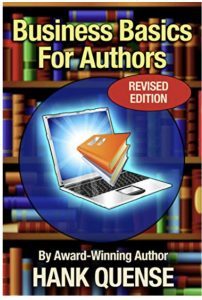
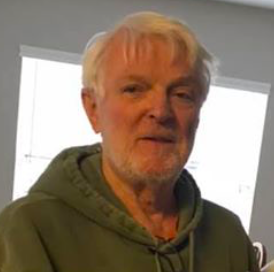 Hank Quense writes satirical fantasy and sci-fi. Early in his writing career,
Hank Quense writes satirical fantasy and sci-fi. Early in his writing career,
he was strongly influenced by two authors: Douglas Adams and his
Hitchhiker's Guide to the Galaxy and Joseph Heller’s Catch-22. Happily, Hank
has never quite recovered from those experiences.
He lives with his wife in northern New Jersey, a mere 20 miles from
Manhattan, the center of the galaxy (according to those who live in
Manhattan). They have two daughters and five grandchildren all of whom
live nearby.
The post Writers on their Biggest Business Challenges appeared first on Elizabeth Spann Craig.
May 15, 2021
Twitterific Writing Links
by Elizabeth S. Craig, @elizabethscraig
Twitterific writing links are fed into the Writer’s Knowledge Base search engine (developed by writer and software engineer Mike Fleming) which has over 59,000 free articles on writing related topics. It’s the search engine for writers. While you're there, check out the Writer's Digest award-winning Hiveword novel organizer.
Have you visited the WKB lately? Check out the new redesign where you can browse by category, and sign up for free writing articles, on topics you choose, delivered to your email inbox! Sign up for the Hiveword newsletter here.
The Top Writing Links From Last Week Are On Twitterific:
Click To Tweet
The post Twitterific Writing Links appeared first on Elizabeth Spann Craig.
May 9, 2021
Keeping Book Production on Schedule
Hi everyone! Just wanted to send you over to my guest post today at the Insecure Writer's Support Group. I'll be giving tips for keeping your book production on schedule…that includes everything from the draft, critiques, editing, cover design, promo, and getting started on the next project. Hope you'll pop over to say hi. :)
Photo credit: SolanoSnapper on Visualhunt.com
The post Keeping Book Production on Schedule appeared first on Elizabeth Spann Craig.
May 8, 2021
Twitterific Writing Links
by Elizabeth S. Craig, @elizabethscraig
Twitterific writing links are fed into the Writer’s Knowledge Base search engine (developed by writer and software engineer Mike Fleming) which has over 59,000 free articles on writing related topics. It’s the search engine for writers. While you're there, check out the Writer's Digest award-winning Hiveword novel organizer.
Have you visited the WKB lately? Check out the new redesign where you can browse by category, and sign up for free writing articles, on topics you choose, delivered to your email inbox! Sign up for the Hiveword newsletter here.
Thanks to everyone for stopping by and commenting today! I'm going to be away from my computer for a bit today, so I'm turning off comments for the post. Happy Mother's Day to all the moms out there!
Business / MiscellaneousWho should you ask to endorse your book? @sandrabeckwithWe need to talk about email thread etiquette: @NathanBransfordSelf-publishing News: Paid Podcast Wars: @agnieszkasshoes @IndieAuthorALLIValue Your Books For The Long Term: @davidfarland @thecreativepennThe Author’s Guide to eBook Pre-orders: @claytonnoblit @WrittenWordMIndie Authors and Literary Prizes and Awards: @OrnaRoss @thecreativepennConferences and Events / MiscellaneousJürgen Habermas Changes Course, Declines the Sheikh Zayed Award: @Porter_Anderson @pubperspectivesThe Jerusalem Prize Goes to England’s Julian Barnes: @Porter_Anderson @pubperspectivesHay Festival Announces 2021 Programming, Second Digital Outing: @Porter_Anderson @pubperspectivesJerusalem International Book Forum: Perspectives on the Pandemic: @Porter_Anderson @pubperspectives @penguinrandom @PublishersLunchUK: Kraszna-Krausz Book Awards 2021: Shortlists and Longlists: @Porter_Anderson @pubperspectivesTips for Book Events: @SiouxR @womenonwritingCreativity and Inspiration / Inspiration / Quotes7 Letters from Famous Writers Sharing Fantastic Writing Advice: @NicoleJBianchi12 Quotes for Writers on Persevering in Publication: @tessaemilyhall @A3writersCreativity and Inspiration / Inspiration / Reading as Writers8 Books Featuring People Coming to Terms With an Abusive Childhood: by Judy Moreno @BookTribFinding Paradise in The Magician’s Nephew: @mattmikalatos @tordotcomFinding Solace in Horror Fiction: @thebookdad @LitReactorFive Off-Beat Gothic and Horror Books for Fans of the Classics: @Rose_Szabo_ @tordotcom6 Books That You Didn’t Realize Are Actually Love Stories: @AmyImpellizzeri @BookTribPlot Devices in Crime Fiction: @MargotKinbergDogs of Crime Fiction: by Jen J. Danna and Ann Vanderlaan @BooksThatThrill10 children’s books that will take kids on a journey: @PiersTorday @GuardianBooksCrime Novels Where Lives are Saved as Well as Lost: @MargotKinbergAuthor, Pirate, Poet, Spy: The Secret Criminals of Classic Literature: @rapscallisonCreativity and Inspiration / Productivity / Fitting in WritingHow to be Flexible with Writing: @AuthorSATCreativity and Inspiration / Productivity / Writer's BlockIs Your Writing in a Slump? Get into the Flow: @KMazeauthorCreativity and Inspiration / Writing LifeWhat You’re Promising By Writing a Novella: by S.E. Jones @TheRyanLanzShowing Up As a Writer: Tips: Gabriel García Márquez on His Improbable Beginnings as a Writer: @brainpickerThe Hack’s Guide to Setting Deadlines for Yourself: @BillFerris @WriterUnboxedThe Benefits Of A Whiteboard To-Do List: @KMAllan_writerBullet Journals for Writers: @KissMyBiz @All_FreelancingHow to Become a Better Writer: 20 Hacks and Tips: @ReedsyHQAuthor Interview with Julie Gray: Unlikely Friendship with Holocaust Survivor Leads to Book, Documentary: @JulieGray972 @Howard_Lovy @IndieAuthorALLIAuthor Interview with Alice McVeigh: Hearing a Symphony in Every Word: @astmcveigh1 @Howard_LovyBelieving in Yourself as a Writer is Vital: @CindyDevoted @EdieMelsonJoyce Carol Oates Thinks You Should Write Your Heart Out: @JoyceCarolOates @lithubGenres / DystopianWriting Dystopian Novels: @bookhorse @thenovelryGenres / FantasyMaking Magic: Structuring Your Unique System: @MoriahRichard93 @WritersDigestGenres / HorrorHow to Write Horror – Interview with Tim Waggoner: @timwaggoner @DIYMFAWriting a Horror Story: Or, how to scare the pants off someone: @woodwardkaren13 Horror Books We Can’t Wait to Read: @HauntedMeg @BDisgustingGenres / Literary FictionThe 4 Pillars Of Literary Fiction: by Oliver Fox @Writers_WriteGenres / Non-FictionNonfiction Writers Feed Their Souls with Words: @NinaAmirGenres / PoetryMoney Models for Poets, with Orna Ross and Trish Hopkinson: @OrnaRoss @trishhopkinson @IndieAuthorALLIGenres / RomancePro tips for writing 10 common romance tropes: @Kerrie_Flanagan @TheWriterMagGenres / ScreenwritingScreenwriting: Believe, Care, Invest: Avatar: The Last Airbender: @CockeyedCaravanScreenwriting: Believe, Care, Invest : Supernatural @CockeyedCaravanPage One: ‘Batman Begins’ (2005): @GoIntoTheStoryScreenwriting: Believe, Care, Invest : Twin Peaks: @CockeyedCaravanScreenwriting: Believe, Care, Invest: Birdman or (The Unexpected Virtue of Ignorance): @CockeyedCaravan60 Second Screenwriter: @GoIntoTheStory12 Hit Movies That Took Ages From Idea To Screen: @AndreaMann @Bang2writeGenres / Short StoriesWhat Short Stories Offer a Writer: by D.L. Finn @StoryEmpireGenres / Young Adult4 Things about Writing YA Novels: from 100 Ways to Write @TheRyanLanzVendela Vida on Finding Humor in the Darker Side of Teenage Life: @janeciab @lithubPromo / Book ReviewsGet Reader Reviews Now to Drive Sales Later: @Lit_Nuts @JaneFriedmanPromo / Social Media TipsSocial Media for Authors: @kikimojoPromo / VideoMedia Interview Preparation Checklist: @SmithPublicity @IngramSparkPublishing / Miscellaneous‘I think I’ve written more Sherlock Holmes than even Conan Doyle': the ongoing fight to reimagine Holmes: @alisonflood @GuardianBooksAAP Honors Amy Klobuchar With Its 2021 Distinguished Public Service Award: @Porter_Anderson @pubperspectivesHow a COVID-era Federal Writers Project went from wild idea to a proposed bill: @DoranyPineda90 @latimesThe Importance of Publishing Inclusivity for Indie Authors: @OrnaRoss @IndieAuthorALLIPublishing / News / International PublishingGermany’s Knowledge Unlatched Starts Its 2021 Open Access Funding Round: @Porter_Anderson @pubperspectivesGermany’s ‘Freedom of Expression Week’ Is Underway: #MehrAlsMeineMeinung: @Porter_Anderson @pubperspectivesCzech Publisher Albatros Media Expands Its Direct International Sales: @Porter_Anderson @pubperspectivesViewpoints from Taiwan and Israel: The Jerusalem International Book Forum: @Porter_Anderson @pubperspectivesSpringer Nature Opens Transformative Agreement With Spain: @Porter_Anderson @pubperspectivesPublishing / Options / Traditional Publishing / QueryingWeave themes into the plot description (query critique): @NathanBransfordWriting Craft / Characters / ProtagonistsTwo Lives – the hero’s twin struggles: @SHalvatzisWriting Craft / Common MistakesSeven Mistakes Authors Make in Writing Medical Scenes: @drjoelshulkin @CareerAuthorsWriting Craft / ConflictWriting Character Focused Fight Scenes: @Free2BFearless @EdieMelsonWriting Craft / Flashback and Back StoryHow to Sneak Flashbacks into Your Novel: @SpencimusWriting Craft / Lessons from Books and FilmMovie Gems from the Early 1930s: @jamesscottbell @killzoneauthorsWriting Craft / Miscellaneous7 Tips to Adding Fear Into Fiction: @cyallowitz10 Mistakes to Avoid When Writing About Mental Illness: @writingandsuchWhat Good Are Sex Scenes in Fiction? @helpfulsnowman @LitReactorHow to Write a Cliffhanger That Keeps the Reader Turning Pages: @shaelinbishop @ReedsyHQCan my child protagonist use adult vocabulary for the sake of the narrative? @TheWriterMagWhat's a Story Disruption? @KiingoCreativeWriting Craft / POVHow to use Multiple Points of View with Clarity and Panache: by Dana Isaacson @CareerAuthorsWriting Craft / Pre-Writing / ResearchThe right way to write about guns in novels: by Andy Maslen @AuthorsAiHow to overcome the perils of information bias: @pubcoachWriting about guns? Get your ammunition right: by Andy Maslen @AuthorsAiWriting Craft / RevisionThe Ultimate Guide to Book Editing: Continuity Editing: @MichaelLaRonn6 ways to improve your novel right now: @LouiseHarnbyWriting Craft / Revisions / CritiquesCreating Online Critique Group Guidelines: @IWriteToo @RMFWritersWriting Craft / Settings and DescriptionHow to Write a Genre Story: Setting: @woodwardkarenHow to write description: @pubcoachHow to Write a Genre Story: Setting and Character: @woodwardkarenWriting Tools / MiscellaneousHow to Keep Track of Your Characters With Index Cards, String, and a Lot of Clothes Pins: @bsnacks @lithubUncategorizedHaunted Houses, Cursed Lands, and the Horror of Gentrification: @sentencebender @tordotcom
The Top Writing Links From Last Week Are On Twitterific:
Click To Tweet
The post Twitterific Writing Links appeared first on Elizabeth Spann Craig.
May 2, 2021
Showing Up As a Writer
by Elizabeth S. Craig, @elizabethscraig
Writing is frequently a really daunting task. So often we have the perfect story conceived in our heads but when it comes to putting it down on paper, it's just not quite the same. That's a big reason why it can be tough for writers to commit to working on their project every day.
It's been said that 80% of success is just showing up. For writers, obviously, not showing up means not making progress on our books.
What exactly does showing up as a writer mean, though?Set aside a dedicated time to write. I'm a big fan for setting the bar low, too. It's more important for our self-confidence as a writer to have a series of “wins” every day than it is to rack up a big word count. But whatever your goal is…five minutes, ten minutes, etc…it's most important that you follow through with it. Think about making it a goal you think you can easily achieve, even if it's just once a week.
But also be flexible enough to grab time when you can. Sometimes we have an unexpected pocket of time. It's really almost like a gift. Instead of scrolling through social media, consider bringing a small notebook with you or opening a document on your phone and brainstorming some ideas for your project.
If something comes up and writing is impossible that day, reschedule the writing session and show up to that one. Sometimes life does get in the way. But try to make your writing time something that you can make: let others know that you're going to be working on your project. Try to protect your time. If the writing session falls through, never try to catch up…it's just such a dispiriting process. Better to reschedule your session for another day or time and show up for that one.
Stay focused during the session. My favorite way to do this is with a timer, but yours might be to disconnect your laptop from the internet or to turn your phone off. Whatever it takes to ensure you can be totally focused on your story.
Have some sort of plan or idea what you're going to write during the next session. I live by my outlines (I'm a reluctant outliner, but I do what works for me), but if you don't like outlining, at least try to have a one-sentence mini-outline to indicate where you want to pick up for your next session so you won't have to spend your writing time re-reading your story.
Set a goal for each session…either by time or by word count. This, again, really helps with focus. And, as I mentioned earlier, you don't have to have a big goal because small ones work just as well.
Spend some time daydreaming or brainstorming ideas for your story. This is something else that's good for those unexpected quiet moments…just letting your mind drift as you think about your characters and the story you're creating.
What are ways that you show up as a writer?
Photo credit: melusina parkin on VisualHunt.com / CC BY-NC-SA
The post Showing Up As a Writer appeared first on Elizabeth Spann Craig.
May 1, 2021
Twitterific Writing Links
by Elizabeth S. Craig, @elizabethscraig
Twitterific writing links are fed into the Writer’s Knowledge Base search engine (developed by writer and software engineer Mike Fleming) which has over 59,000 free articles on writing related topics. It’s the search engine for writers. While you're there, check out the Writer's Digest award-winning Hiveword novel organizer.
Have you visited the WKB lately? Check out the new redesign where you can browse by category, and sign up for free writing articles, on topics you choose, delivered to your email inbox! Sign up for the Hiveword newsletter here.
The Top Writing Links From Last Week Are On Twitterific:
Click To Tweet
The post Twitterific Writing Links appeared first on Elizabeth Spann Craig.


